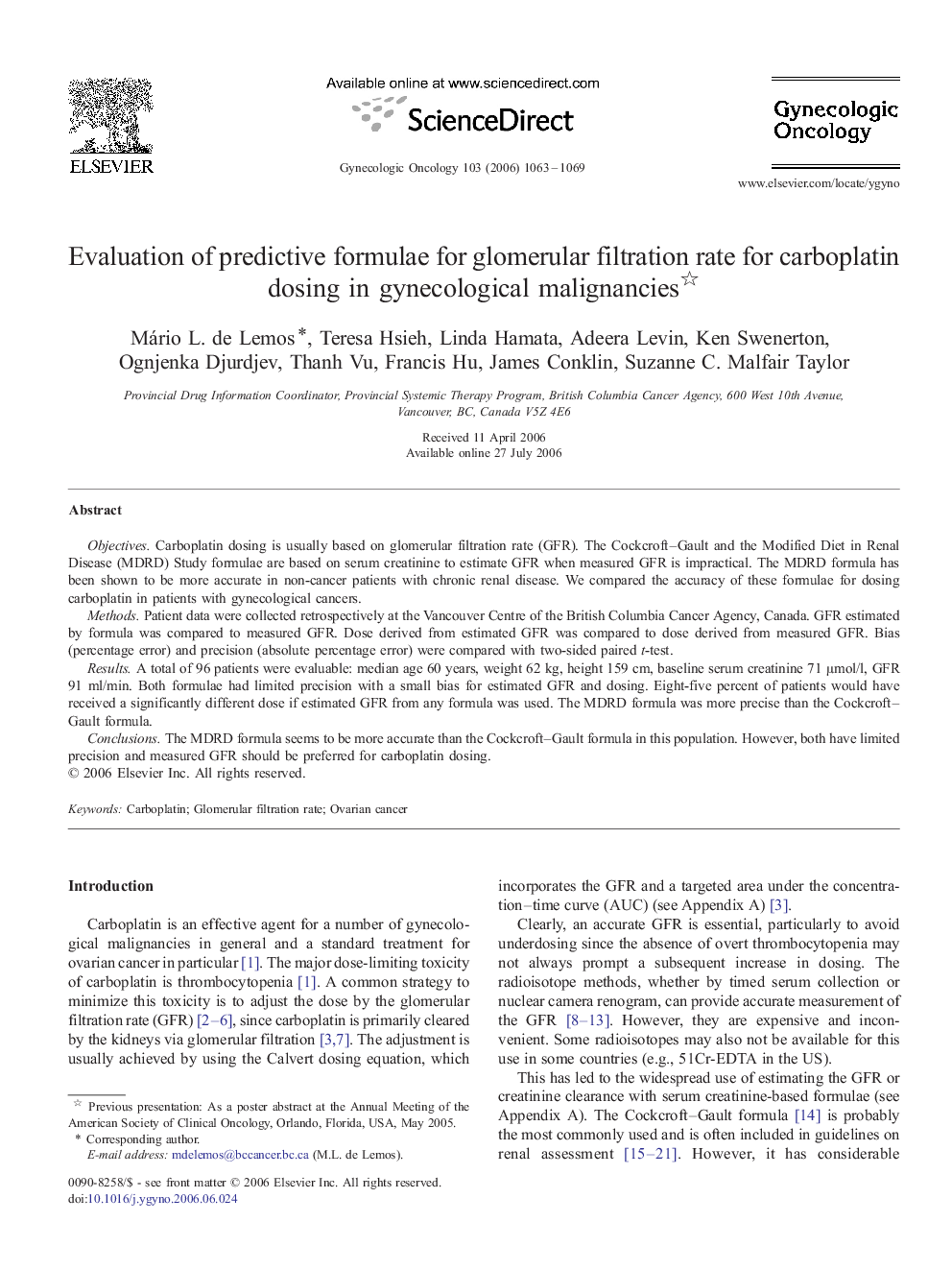| Article ID | Journal | Published Year | Pages | File Type |
|---|---|---|---|---|
| 3943669 | Gynecologic Oncology | 2006 | 7 Pages |
Objectives.Carboplatin dosing is usually based on glomerular filtration rate (GFR). The Cockcroft–Gault and the Modified Diet in Renal Disease (MDRD) Study formulae are based on serum creatinine to estimate GFR when measured GFR is impractical. The MDRD formula has been shown to be more accurate in non-cancer patients with chronic renal disease. We compared the accuracy of these formulae for dosing carboplatin in patients with gynecological cancers.Methods.Patient data were collected retrospectively at the Vancouver Centre of the British Columbia Cancer Agency, Canada. GFR estimated by formula was compared to measured GFR. Dose derived from estimated GFR was compared to dose derived from measured GFR. Bias (percentage error) and precision (absolute percentage error) were compared with two-sided paired t-test.Results.A total of 96 patients were evaluable: median age 60 years, weight 62 kg, height 159 cm, baseline serum creatinine 71 μmol/l, GFR 91 ml/min. Both formulae had limited precision with a small bias for estimated GFR and dosing. Eight-five percent of patients would have received a significantly different dose if estimated GFR from any formula was used. The MDRD formula was more precise than the Cockcroft–Gault formula.Conclusions.The MDRD formula seems to be more accurate than the Cockcroft–Gault formula in this population. However, both have limited precision and measured GFR should be preferred for carboplatin dosing.
